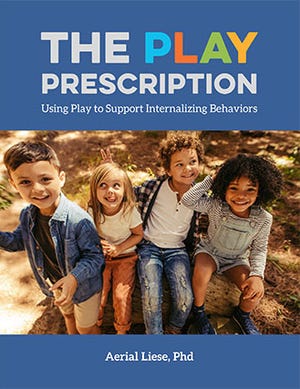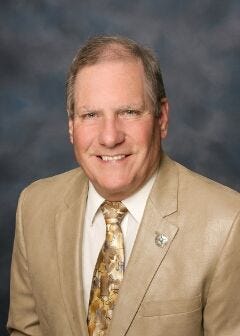Measure mandating 30-minute recess for K-3 students heading back to state Legislature
Unstructured play time critical to proper development, author and teacher says
- The bill was introduced last year but never made it out of a Senate committee.
- It is being introduced again this year by Sen. Steve Neville of Farmington.
- Many school districts have trimmed recess time recently to add to classroom instruction time.
FARMINGTON — For the second year in a row, a Farmington lawmaker is introducing a measure that would require public school systems in the state to mandate a 30-minute recess for children in kindergarten through third grade.
State Sen. Steve Neville, R-Farmington, said he is introducing the measure at the behest of San Juan County educator Aerial Liese, an instructor in San Juan College’s teacher education program and elementary school teacher in the Central Consolidated School District. Liese, who has a doctorate in special education, is the author of the 2021 book “The Play Prescription: Using Play to Support Internalizing Behaviors,” in which she argues that play serves a very important role in childhood development.
“The premise of (the bill) is to protect recess times,” Liese said. “For various reasons, it keeps getting sliced. Some schools now only offer 15 minutes.”
There is a mountain of evidence that indicates that children need a minimum of 30 minutes of unstructured play time each day to develop the emotional and social skills they will rely on later in life, she said.
“To me, it’s so ridiculous we’re having to legislate something like this,” she said. “Play itself for kindergarten through third grade is desperately needed. It has so many benefits.”
Neville, who said he has known Liese for many years and appreciated her book, agreed.
“Her book justifies the concept (of the bill),” he said. “Kids need to have a little space every day, and 15 minutes isn’t enough. We’re aiming to make sure they get that 30 minutes every afternoon.”
While she emphasized she was not drawing a firm link between a lack of adequate play time and the recent shooting of an elementary school teacher in Virginia by one of her 6-year-old students, Liese said the news did not surprise her.
“To me, I think that’s a symptom of how bad things have gotten for our little ones,” she said, noting that proper emotional and social development among children has taken a major hit since the COVID-19 pandemic began in 2020, leaving many schools shuttered for months at a time, and some students feeling isolated and alienated.
“It’s not a direct correlation, but it’s certainly an indication,” she said.

Liese and Neville both said that since the pandemic, many school districts in New Mexico have attempted to make up for the instruction time they lost with their students by trimming recess time rather than adding to the length of the school day. Neville said another element that factors into the push to increase instruction time is the Yazzie/Martinez v. State of New Mexico court decision that found the state’s public schools were not providing sufficient public education to underserved students, especially those in the Native American community.
“That’s one of the obstacles, and it’s led districts to cut down on recess time,” he said.
Liese said she certainly understands the temptation to sneak in more instruction time to make up for the losses of the past few years. But she described such moves as counterproductive, explaining that instruction time should not come at the expense of play time.
“They need it — they need it to learn,” she said.
Neville also said that while the bill does not appear to be a partisan issue, some opposition may emerge from school district officials across the state who reject top-down edicts that emerge from the State Capitol. Many of them perceive that as a loss of local control, he said.
The bill never made it out of the Senate Education Committee last year, Neville said, which was not a surprise, given the fact that it was only a 30-day session. During such sessions, he said, lawmakers largely are prohibited from addressing issues that don’t apply to the budget or other financial issues unless the governor requests that they be added to the agenda.

That won’t be the case during this year’s 60-day session, he said, and that makes it much more likely the bill will advance. He said the measure likely will begin its legislative journey in the Education Committee, of which he is a ranking member, and perhaps go to the Health & Public Affairs Committee or the Finance Committee before it would be heard before the entire Senate.
In the House, the bill also would begin in the Education Committee before being advanced, he said.
New Mexico lawmakers are not alone in considering such a bill, according to both Liese and Neville, with the Illinois General Assembly already having adopted a similar measure, while lawmakers in Oklahoma and Arizona reportedly are considering bills of their own.
Neville said that while the issue may not have reached critical mass, it appears as if the need to protect recess time is one that is increasingly on the radar of policy makers these days. Liese said that growing awareness makes her optimistic about the bill’s odds of passing this year, especially since it is one of the few measures that doesn’t feature a divide between Democrats and Republicans.
“It can be done,” she said. “It just needs the political will.”
Mike Easterling can be reached at 505-564-4610 ormeasterling@daily-times.com. Support local journalism with a digital subscription: http://bit.ly/2I6TU0e.